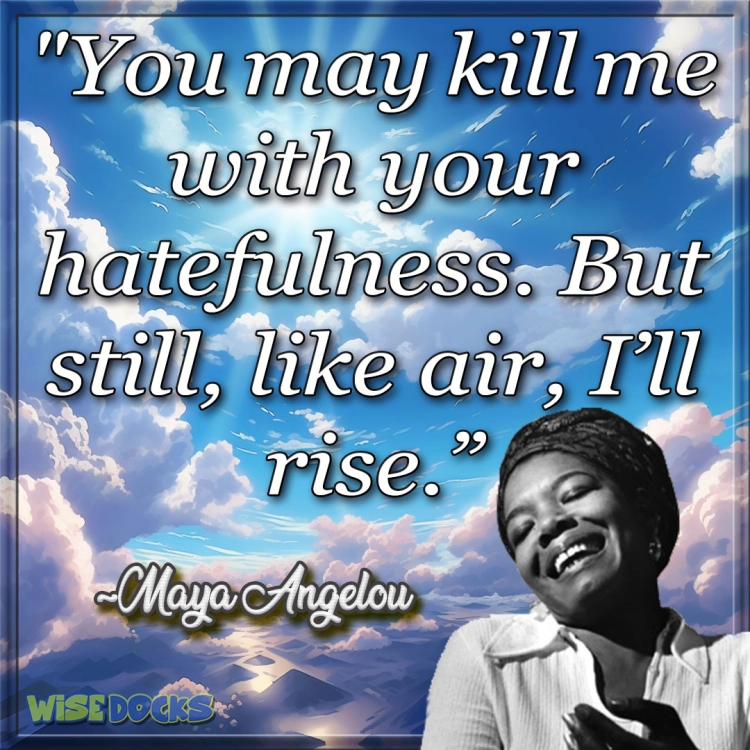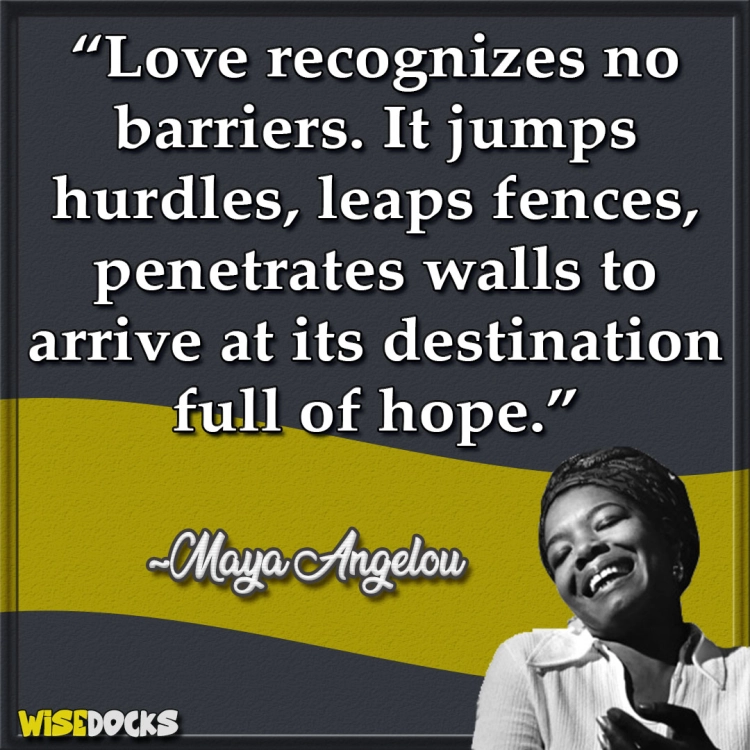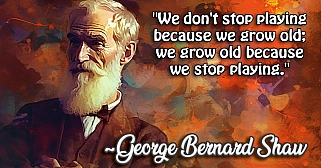Maya Angelou: A Voice of Resilience and Grace

Maya Angelou
Maya Angelou’s life was a journey of transformation. Through her art, activism, and relentless pursuit of justice, she became one of the most influential voices in American culture. A poet, memoirist, and civil rights activist, Angelou’s works spoke to the struggles and resilience of not only Black women, but of all who sought to rise above the circumstances of their lives. Her literary achievements, coupled with her passionate advocacy for human dignity and equality, left an indelible mark on generations to come.

Early Life and Childhood
Born Marguerite Ann Johnson on April 4, 1928, in St. Louis, Missouri, Maya Angelou's early years were filled with adversity. When her parents' marriage dissolved, she and her brother, Bailey, were sent to live with their paternal grandmother in the small town of Stamps, Arkansas. It was there that Angelou first encountered the harsh realities of segregation and racism, experiences that would deeply shape her worldview.
Her grandmother, whom Angelou called “Momma,” owned the only Black-owned store in the town and was a pillar of the local Black community. From her, Angelou learned the value of self-respect and resilience in the face of adversity. Despite the external challenges, Angelou found solace in literature. She read voraciously, immersing herself in the works of Shakespeare, Dickens, and Black poets like Paul Laurence Dunbar. This early exposure to literature would lay the foundation for her later career as a writer.
However, Angelou’s childhood was not without trauma. At the age of seven, during a brief stay with her mother in St. Louis, she was sexually assaulted by her mother’s boyfriend. The aftermath of this event deeply impacted her. After confiding in her brother, the man was arrested, and shortly after being released from jail, he was murdered—likely by members of Angelou's family. The weight of this traumatic experience caused Angelou to retreat into silence, believing that her voice had the power to kill. For nearly five years, she spoke to no one except her brother.

During this period of silence, Angelou's connection to literature deepened. She found comfort in reading and writing, and it was through these creative outlets that she began to heal. It was a teacher and family friend, Mrs. Bertha Flowers, who finally helped Angelou find her voice again. Flowers introduced her to poetry, encouraging her to read the works aloud and helping her understand the power of language as a tool for healing and expression.
A Coming of Age in San Francisco
Angelou’s teenage years saw her move to San Francisco to live with her mother, Vivian Baxter, a fiercely independent woman who had a profound influence on Angelou. Life in the vibrant city was vastly different from the segregated South. At 16, Angelou became the first Black female streetcar conductor in San Francisco, displaying the kind of determination that would characterize her entire life.
Shortly thereafter, Angelou gave birth to her only son, Guy Johnson, at the age of 17. Raising a child as a single mother was challenging, but she worked tirelessly in a series of jobs to provide for her son. Her passion for the arts led her to explore various forms of creative expression, including dance, acting, and singing. She even performed as a dancer in nightclubs under the name "Rita" and later traveled Europe with a touring production of Porgy and Bess, gaining exposure to the world and a deeper understanding of different cultures.

Political Awakening and Civil Rights
In the late 1950s and early 1960s, Angelou's focus began to shift more explicitly toward political activism. She became involved in the civil rights movement, working alongside key leaders such as Dr. Martin Luther King Jr. and Malcolm X. Her work as a coordinator for the Southern Christian Leadership Conference and her close ties to the movement highlighted her deep commitment to fighting for racial equality and justice.
During this period, Angelou also lived in Cairo, Egypt, where she worked as an editor for The Arab Observer, and later in Ghana, where she taught at the University of Ghana and worked as a journalist. Her time abroad exposed her to Pan-Africanism and deepened her understanding of the global struggles for liberation and justice. These experiences broadened her perspective and would later influence her writing, imbuing it with a sense of shared humanity and universal themes of freedom and dignity.
I Know Why the Caged Bird Sings
In 1969, Maya Angelou published I Know Why the Caged Bird Sings, the first in a series of seven autobiographical works that would come to define her literary career. The book, which recounts her early life and the traumas and triumphs she experienced, was groundbreaking. It marked a radical departure from traditional autobiography, blending poetry and prose with an unflinching honesty about issues such as racism, sexual abuse, and personal identity.
The memoir was an immediate success, garnering critical acclaim and earning a place in the canon of American literature. It resonated with readers who saw in Angelou’s story their own struggles for self-worth and dignity. In I Know Why the Caged Bird Sings, Angelou captured the universal desire for freedom, both physical and emotional, that transcends race and gender.
The title of the book, inspired by the poem "Sympathy" by Paul Laurence Dunbar, symbolized Angelou's own feelings of confinement and her ultimate triumph in finding her voice. The memoir not only established Angelou as a formidable literary talent but also opened the door for future writers, particularly women of color, to share their stories with the world.

Poetry and Performance
Angelou’s talent was not confined to memoir. She was also a prolific poet whose works often explored themes of resilience, strength, and empowerment. Her poetry collections, such as Just Give Me a Cool Drink of Water 'fore I Diiie (1971) and And Still I Rise (1978), are renowned for their lyrical beauty and powerful messages of hope. One of her most famous poems, “Still I Rise,” is an anthem of defiance and survival in the face of oppression:
“You may trod me in the very dirt
But still, like dust, I’ll rise.”
Her ability to capture the essence of human strength in the face of adversity made her a beloved figure not only in the literary world but also in the broader cultural landscape.
In 1993, Angelou became the first Black woman to recite a poem at a U.S. presidential inauguration when she delivered her poem “On the Pulse of Morning” at the inauguration of President Bill Clinton. Her stirring performance was watched by millions and further solidified her place as a national treasure.
Later Life and Legacy
As Angelou aged, her influence only grew. She continued to write, publish, and speak, becoming an even more visible figure in public life. She authored additional memoirs, essays, and poetry, each work contributing to her legacy of truth-telling and empowerment. Angelou received countless accolades throughout her career, including three Grammy Awards for her spoken-word albums and the Presidential Medal of Freedom in 2011, the highest civilian honor in the United States.
Throughout her life, Angelou was also a dedicated educator, teaching at various universities and sharing her knowledge with young writers and activists. She believed deeply in the power of education and mentorship, encouraging others to rise and embrace their unique voices, just as she had done.


